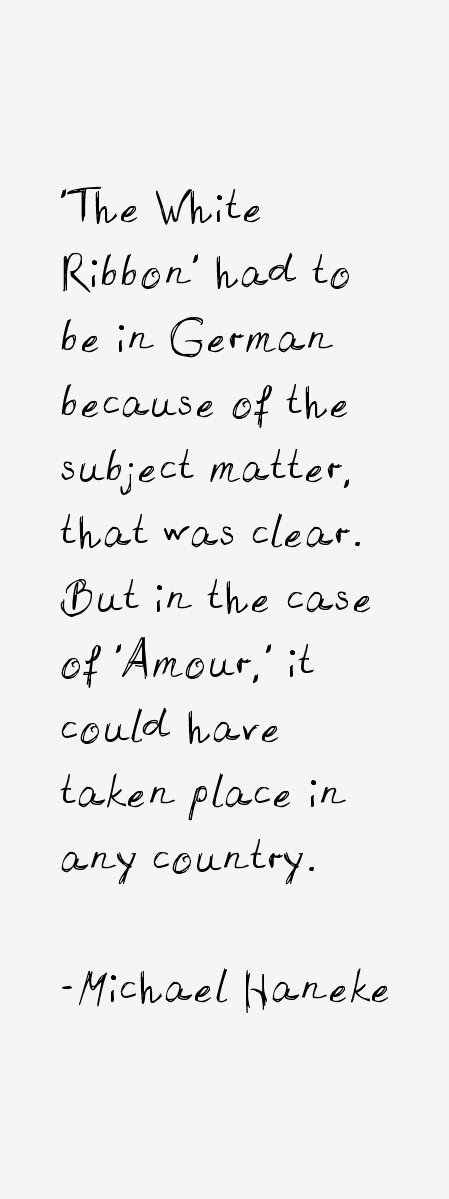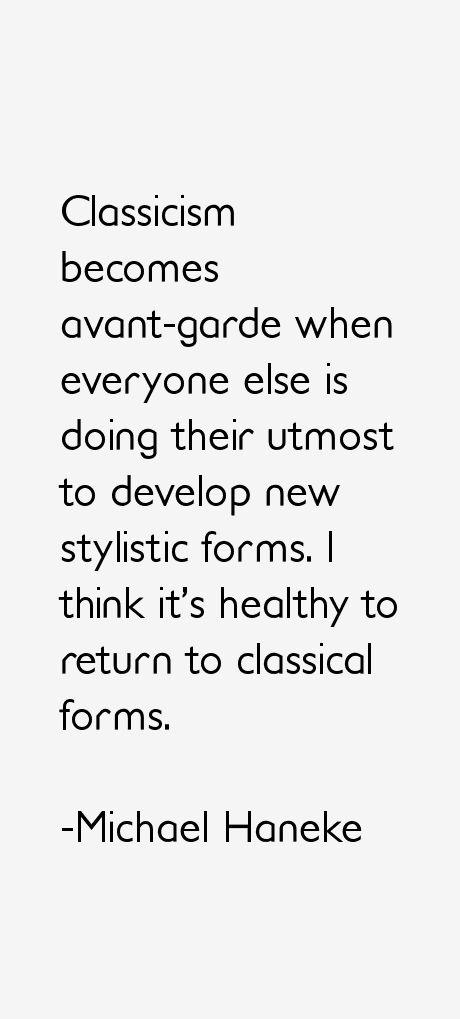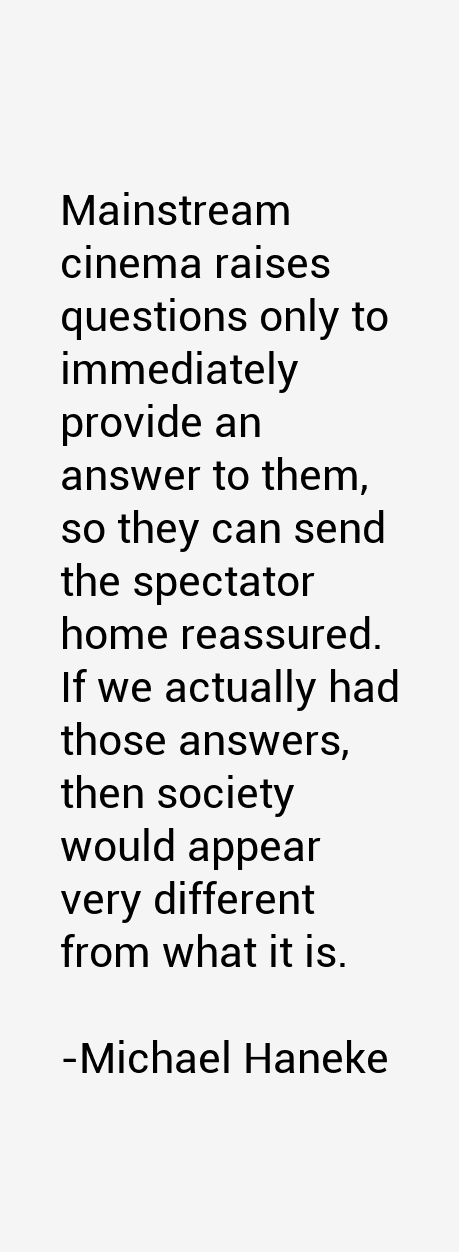Michael Haneke Quotes & Sayings (Page 4)
Michael Haneke quotes and sayings page 4 (83 year old director). Here's quote # 31 through 40 out of the 53 we have for him.
“I make my films because I'm affected by a situation, by something that makes me want to reflect on it, that lends itself to an artistic reflection. I always aim to look directly at what I'm dealing with. I think it's a task of dramatic art to confront us with things that in the entertainment industry are usually swept under the rug.”

“Films that are entertainments give simple answers but I think that's ultimately more cynical, as it denies the viewer room to think. If there are more answers at the end, then surely it is a richer experience.”

“'The White Ribbon' had to be in German because of the subject matter, that was clear. But in the case of 'Amour,' it could have taken place in any country.”
“To be perfectly honest, I think that as I'm growing older, I'm just growing more impatient. I'll be very happy if at some point people say, 'Michael's grown wiser and softer in his old age.' But we'll have to wait and see what my next project is.”
“When my first film 'The Seventh Continent' was presented here 12 years ago, non-Austrian spectators would come up to me and say, 'Is Austria that terrible?', whereas for me it wasn't about Austria but about highly industrialised cultures everywhere.”

“Classicism becomes avant-garde when everyone else is doing their utmost to develop new stylistic forms. I think it's healthy to return to classical forms.”
“I love actors, both my parents were actors, and the work with actors is the most enjoyable part of making a film. It's important that they feel protected and are confident they won't be betrayed. When you create that atmosphere of trust, it's in the bag - the actors will do everything to satisfy you.”
“I'm lucky enough to be able to make films and so I don't need a psychiatrist. I can sort out my fears and all those things with my work. That's an enormous privilege. That's the privilege of all artists, to be able to sort out their unhappiness and their neuroses in order to create something.”

“Mainstream cinema raises questions only to immediately provide an answer to them, so they can send the spectator home reassured. If we actually had those answers, then society would appear very different from what it is.”
“There are really two types of laughter on the part of the spectator. There is the laughter of recognition - which means seeing things you're familiar with and laughing at yourself. But there's also hysterical laughter - a way of dealing with the things we see that upset us.”
Michael Haneke Quotes Rating
No Ratings Yet
Leave A Comment
























